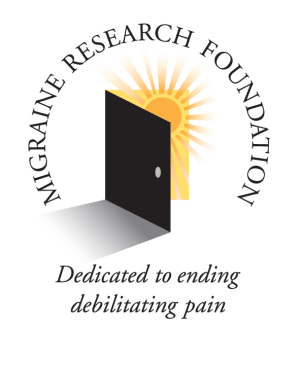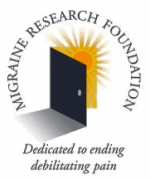This September, our HeadWay community took a big step forward in the fight against migraine. It’s time to say thank you – and to ask you to join them!
Last month those who subscribe to the free e-zine, HeadWay, were asked to support the Migraine Research Foundation. The response was overwhelming. Although I don’t know the exact amount that was raised, the MRF president, Cathy Glaser, wrote to say that they were “inundated” with donations.
As many of you know, we have long supported the MRF here. But I would like to ask you to join with the HeadWay community today to support migraine research. If every person reading this post gave only a few dollars, it would be a huge boost to migraine research around the world.
Below is a summary (from the September edition of HeadWay) of some of the research that the Migraine Research Foundation has funded. Action is being taken to help migraine sufferers like us, and our families.
Please give now to the Migraine Research Foundation. If you would like to encourage others to give, you can show your support (with your name or anonymously) by donating through FirstGiving.
Thanks again to the many HeadWay subscribers who gave so generously to fight migraine!
What kind of research has the MRF funded? Let’s take a quick look at some of the past and present research:
- What impact does migraine have on children and teens, and how is current treatment helping? (Cincinnati Children’s Hospital)
- How does the “cortical spreading depression” common in migraine influence migraine symptoms? (University of CA & Imperial College London)
- Could medication based on GLYX-13 slow or even stop a migraine attack? (New York Medical College)
- How might triptans lead to medication overuse headache? (University of New England)
- Is a gene mutation changing how estrogen functions, leading to more migraine attacks? (Brigham Young University USA)
- Could insulin be used in new migraine treatments to fight chronic migraine? (Chicago Medical Center)
- How do glutamate receptor gene variants change migraine symptoms? (Institute of Genetics and Biophysics Italy)
- Which genetic factors may impact migraine and cardivascular disease? (Brigham and Women’s Hospital Boston)
- Does a certain molecule in the body help explain how migraine becomes chronic? (University of Chicago Medical Center)
- Could the drug ibudilast finally fight chronic migraine? (University of Adelaide, Australia)
- How can we use inhibitory transcranial alternating current stimulation to fight migraine? (Georg-August University Germany)
- How can we use a feature length documentary to raise awareness and promote migraine research? (Human Arts Association New York)
Note: I do not work for, and am not officially affiliated with the Migraine Research Foundation. Not a penny of any donation goes to me. In fact, the MRF has reminded us that “All our operating costs are underwritten so every dollar raised goes to fund migraine research and support sufferers.“



